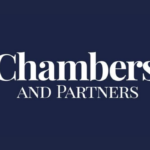There are several strands in the Government’s support to business. They are looking to reduce business overheads and staff costs and to make available sufficient funds to keep businesses liquid. These schemes will affect law firms in different ways. The list below is not a detailed explanation of each element but a checklist to ensure that you have not overlooked what is available. Please call your Baskerville Drummond contact if you would like further information or assistance with any of the measures listed below.
Warning! These measures are new and not finalised. They are also subject to change and addition at any time. You must take advice from your professional advisor before taking any action in connection with these schemes.
Coronavirus Job Retention Scheme
The Government is paying 80% of an employee’s salary, up to a maximum of £2,500 per month, (plus NIC & pension costs), providing that the employee is “furloughed”, i.e. remains on payroll but does not undertake any work for the employer. That minimum amount must be paid to the employee (and their pension fund).
The scheme started with effect from 1 March 2020 and will initially operate for 3 months. It will be claimable via a web portal, to come into operation shortly. Further guidance will also be issued about the interaction with NIC and pension and how to make the appropriate claims.
Self-employed Income Support Scheme
Attempting to mirror the Job Retention Scheme (above), the self-employed can receive a grant of up to £2,500 per month, based upon their most recent trading profits. An average of the profits in tax years 2016/17, 2017/18 and 2018/19 will be used. If the taxpayer was not self-employed in either of the earlier two years, they will be ignored for this purpose. So, the amount payable could be calculated by reference to 2018/19 only. Those profits will be capped at £50,000 p.a.

No claim is yet required for this purpose. HMRC will contact eligible taxpayers in due course and ask them to apply on-line.
The scheme does not currently provide any support for those that operate through limited companies and pay themselves largely though dividends. Nor does it provide support for those who became self-employed after 2018/19 tax year.
Tax-deferral schemes
Both VAT and self-assessment income tax payments are currently able to be deferred. Please note, they remain payable, but payment is delayed until later, when the Government hopes that businesses will once again be receiving trading income to pay their liabilities. Currently, Government are allowing up to 31 March 2021 to pay the accrued liabilities created by the VAT delayed payments.
VAT quarters ending in February, March and April are automatically deferred. No claim is required. However, if your firm pays by Direct Debit, you must cancel that DD to ensure the money is not deducted automatically.
Self-Assessment Income Tax due by 31 July, (typically the 2019/20 1st interim payment), is deferrable until 31 January 2021, i.e. when the balancing charge would ordinarily be payable. You could pay it if you wish but HMRC are not expecting anything at this time.
Coronavirus Job Retention Scheme
The Government is paying 80% of an employee’s salary, up to a maximum of £2,500 per month, (plus NIC & pension costs), providing that the employee is “furloughed”, i.e. remains on payroll but does not undertake any work for the employer. That minimum amount must be paid to the employee (and their pension fund).
The scheme started with effect from 1 March 2020 and will initially operate for 3 months. It will be claimable via a web portal, to come into operation shortly. Further guidance will also be issued about the interaction with NIC and pension and how to make the appropriate claims.
Coronavirus Business Interruption Support Scheme (C-BILS)
UK-based firms with turnovers less than £45M can apply for loans and other credit facilities, such as invoice discounting, from a number of finance institutions (currently more than 40).
Amounts available to borrow vary from as little as £1,000, to a maximum of £5M.
Interest will be paid by the Government in the first 12 months.

Normal term loans and asset finance deals can run from 3 months to 10 years.
For invoice finance and other revolving credit facilities, the term is reduced to 3 years.
The scheme is underwritten by Government, such that 80% of the debt would be paid by Government to the lender in the event of default. Note, it is the lender that is being supported.
Note that, under the rules set by the British Business Bank, the financial institution evaluating the loan proposal does not first have to see if the loan would qualify under its normal loan criteria. Also, it cannot demand personal guarantees or security over the partners’ or directors’ private residences.
Application is to the lender in each case and currently, due to high demand, it is recommended that application is via the finance institution’s website.
Coronavirus Large Business Interruption Support Scheme, (CL-BILS)
A scheme is being established to provide similar support with loan facilities up to £25M for businesses with turnovers from £45M – £500M but details are still being finalised.
Business Rates Support
As well as specific support for businesses in the nursery, retail, hospitality and leisure industries, a general relief scheme for very small businesses may be of benefit to law firms based in England.
If the firm already benefits from Small Business Rates Relief or Rural Relief and tapered relief, it may be eligible for a grant of £10,000. No claim is required. The responsible Local Authority will contact the firm. However, if nothing is heard, a call should be made to the LA.
Statutory Sick Pay
SMEs with fewer than 250 employees as at 28 February 2020 will be eligible for a rebate of SSP paid in respect of those off work due to Covid-19. The scheme is not currently finalised, but records should be kept of all staff who are absent due to Covid-19 so that the claim can be made when it is ready.

Time to Pay
As well as the specific tax deferral measures mentioned above (for VAT and Income Tax under Self-Assessment), any business, such as a Limited Company that has Corporation Tax to pay, should request time to pay. This is a general provision with no fixed rules and is on application to HMRC on a case-by-case basis.
Commercial Tenants – ban on evictions
Any commercial tenant, such as a law firm, that misses a rent payment in the next 3 months, cannot be evicted under the Coronavirus Bill – to be passed into law.








